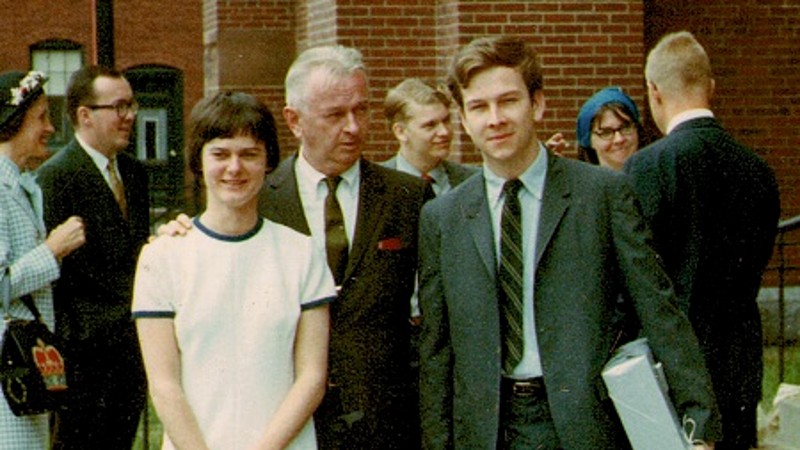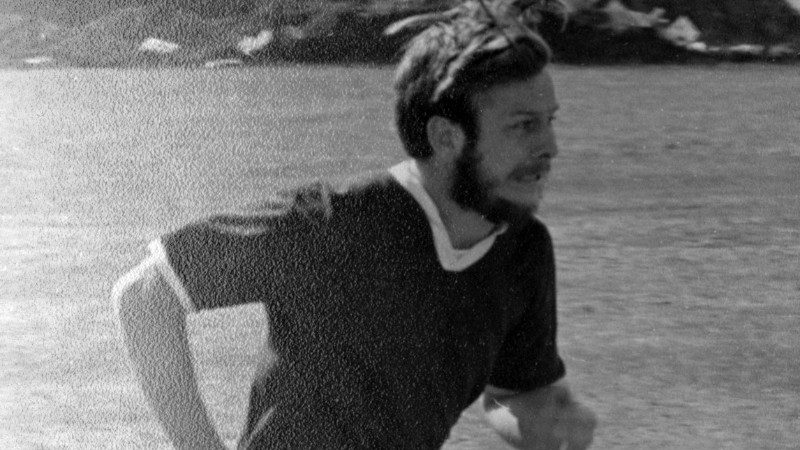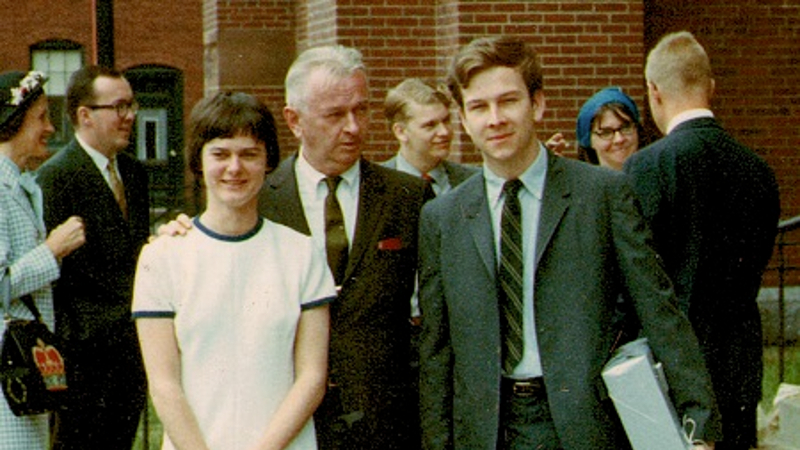Legacy Stories
John McKenna

John McKenna spent his life in Boston. He was a lifelong rugby player and played several other tough sports. McKenna was known for fiercely standing up for his beliefs, including standing with Dr. Martin Luther King Jr. in the Civil Rights March from Selma to Montgomery or being a conscientious objector to the Vietnam War. McKenna would be jailed twice for his protesting efforts. He spent the rest of his adult life in law enforcement, law, and in continued advocacy for social good in Boston. After his death in 2015 at age 71, McKenna’s family donated his brain to CTE research at the VA-BU-CLF Brain Bank.
John was a true son of Boston, and lived his adult life in the South End. He was a man of action whose life was rooted in fairness and justice, and who found a kindred spirit in his wife of 49 years, Kathe.
When they saw homeless sleeping in doorways in the South End in the mid 1960’s, they provided hospitality, inviting them to sleep in their living room. When the need to feed, clothe and shelter the homeless exceeded the space in their apartment on Upton Street, together with like-minded friends they purchased 23 Dartmouth Street and founded Haley House of Hospitality.

The new non-profit now had a home, but it also had bills, so John-- with pick and shovel in hand --dug graves at Brook Farm cemetery, giving his paycheck to Haley House. Founded as a simple Catholic Worker Soup Kitchen, Haley House currently serves homeless and marginalized individuals in 100+ units of affordable housing in the South End and two social enterprises in Roxbury: Haley House Bakery Café and Dudley Dough.
While a student at Holy Cross College, and under the threat of expulsion, he joined Dr. Martin Luther King’s 1965 Civil Rights March from Selma to Montgomery. Hosted by an African-American host family, John was picked up by the police on his way to the Edmund Pettus Bridge and locked in a bus with other potential marchers to prevent their participation.
John and Kathe honeymooned on James Meredith’s “March Against Fear.” His responsibility was to walk the perimeter to intervene with night-riders. John also took a firm stance against the war in Vietnam, registering as a conscientious objector in 1967. He was jailed in 1968 and 1969 for his participation in anti-war demonstrations.

In order to support his family, John became an MBTA police officer. He would serve for 20 years and eventually become head of the patrolmen’s association. While on the force he put himself through law school. Stoop-sitting, a South End tradition is for most an opportunity to enjoy a quiet place to chat. But for John the stoop was also his study hall. After his overnight MBTA shift, John could be found on his steps, law books in hand, preparing for class at Suffolk Law School. The method worked well, as he passed the bar on his first try and practiced law for the next 14 years. Gov. Weld appointed him to an administrative law judgeship in 1992.
John eventually went back to providing direct care to homeless individuals and families at Pine Street Inn and Sojourner House. For more than 20 years, John also served as an officer and board member for COMPASS, where his wisdom and integrity helped guide and grow the small special-education school into a multi-service organization assisting at-risk youth and families throughout Boston as well as a dozen other areas in Massachusetts.
John was also a fierce athlete. Be it rugby in Somerville, squash in Roxbury, softball in Brighton or a run around Castle Island, there was no need for stretching or warming up, for there was a game to be played. Unfortunately, his whole-hearted participation in rugged sports would significantly diminish his health later in life.
With multiple jobs and four daughters, John was not one to rest. His girls once posted a cartoon on their refrigerator entitled “Dad on Vacation.” It depicted a man watching a vacation scene on TV.
In sum, John was a humble hero -- not only to family and friends, but to countless souls whose lives he enriched immeasurably through his tireless efforts. There will be many, in years still to come, who will benefit from his accomplishments without ever knowing his name.
You May Also Like

Living with suspected CTE can be difficult, but CTE is not a death sentence and it is important to maintain hope. Find out how.
Living with CTE
Although we cannot yet accurately diagnose CTE in living people, a specialist can help treat the symptoms presenting the most challenges.
CTE Treatments